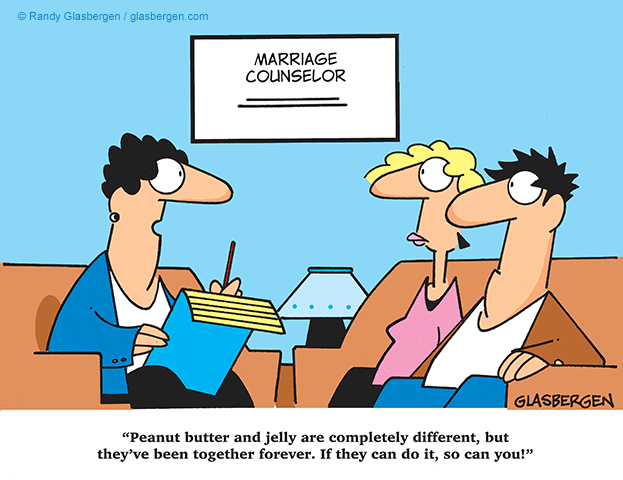Visits: 57
Our culture places a great deal of value on the idea of forgiveness. In some part, this is done without thinking about what forgiveness might mean in extreme situations like the one you have been in.
There are all kinds of culturally defined connotations to the idea of forgiveness. Many of them are reflected in the way we colloquially talk about forgiveness. You might hear phrases like “to forgive is divine” or “just forgive and forget.” Ultimately, you could be confused about what it means to forgive. It could seem that you aren’t ready to forgive your partner if these ideas are tied to the act of forgiving.
The truth is that while we use the term forgiveness quite often in our everyday language, we do so loosely. The idea of forgiveness is actually fairly poorly defined.
What does it mean to forgive someone?
Does it mean that you forget what has happened?
Does it mean that you understand why they did what they did?
Does it mean that you are in a position to absolve them of their crimes?
Does it mean something else entirely?
Many volumes have been written on forgiveness, and no two definitions seem to match very well. At best, we could say that a person’s understanding of what it means to forgive comes entirely from them. It is very difficult to generalize about what it means to forgive.
If you feel like you have a good understanding of what forgiveness means for you and you feel like you are ready to forgive your partner in order to move on, by all means do so. I do not discourage people from the idea of forgiving their partners. I am sure it is a very healing experience. But the truth is that most people don’t have a particularly clear idea of what it means to forgive.
It is also true that you don’t have to forgive your partner in order to move on with your life and create a beautiful relationship together. You can do that with acceptance. We have already defined what acceptance is at this point. Essentially, it is coming to terms with that which you cannot change. This is very different from the standard ideas of forgiveness in a number of ways.
Acceptance does not mean that you have to forget the affair. It does not mean that you divinely overcome the pain you are feeling. It does not mean that you let your partner off the hook or that you absolve them of guilt. Acceptance does not carry with it any of the more abstract and difficult components that forgiveness carries. Instead, acceptance simply means that you accept what has happened as an unchangeable event and, at the same time, move forward in a positive direction toward a better life together.
In order to make sure that there is no misunderstanding about what I mean by acceptance, let’s investigate the five myths that surround acceptance.
The Five Myths that Surround Acceptance
Unfortunately, most people in our culture have the wrong idea about what acceptance means. There are five primary myths that abound. I would like to describe each myth for you, and then tell you why it is a myth.
Acceptance Myth #1: Acceptance Can Happen All at Once
This is the #1 myth about acceptance because it is totally unfounded. Like so many other types of magical thinking (some of which have been addressed in this course), people tend to believe that acceptance is black and white, a switch of some kind that you either turn on or leave off.
Nothing could be further from the truth. Even if you wake up one day and say to yourself, “I am ready to accept the past and move on,” it is the result of an accumulation of small changes occurring over time. You might notice one day that the affair has less immediate impact on your life and that slowly you are beginning to accept it. Or perhaps you are thinking about your situation and realize in retrospect that you have been paying less and less attention to the affair and more and more attention to the future with your partner.
Acceptance is a process. It can fade in and out for you over a period of time. There might be days when you feel you are really moving forward, and there might be days when you feel you are drowning in your emotions about the affair. This process is natural. Acceptance typically takes time.
Fortunate or unfortunate as it might be, human beings are much more complicated than a simple light switch. We are not robots who can turn emotions on or off with a switch.
Even if this were possible, it wouldn’t be a final solution to all the difficulties inherent in an intimate relationship. People make mistakes in judgment. There will undoubtedly be other things your partner will do that will hurt your feelings, perhaps in ways that are difficult to come to terms with.
A long-term or life-long relationship means that you are in it together through thick and thin. Being in a relationship means that you offer to be emotionally present to own up to the wrong things you do and your errors in judgment that end up hurting the one you love. It could be either one of you on the hurting end of this equation, and your commitment needs to be to stay together and work it out within the relationship to create an even stronger bond in the long run. Surviving these hurtful times without bringing up the “D-word” (divorce) and without demeaning or disrespecting your partner builds trust in each other and in your commitment to grow old together.
The need to accept again and again is inherent in any relationship. It is particularly necessary in intimate relationships where the softer, more vulnerable parts of you are opened up and shared with another. Inevitably, your partner will step on your delicate feelings. You need to learn to accept their mistakes authentically to keep the relationship alive and thriving. In other words, don’t sweat the small stuff.
Acceptance Myth #2: Once You Accept the Affair, Positive Feelings Will Replace the Negative Feelings You Once Had
Many people have the mistaken notion that if they can accept the past it will be like taking some sort of magical potion that will replace all of their negative feelings with lighter, more positive ones. This isn’t the case.
Accepting the affair will not undo the hurt your partner caused you. It can’t, and it isn’t about that. Accepting the affair is a way of saying that you have opened your heart to your partner again, that you are ready to leave the past behind, and that you want to move forward with your relationship. Do not allow yourself to get fooled into believing this means the past has been obliterated. The idea of acceptance is predicated on the fact that the past has happened and, in fact, cannot be undone. After all, if you could change it, wouldn’t you?
At this point in the program you should have a sense that your relationship is growing into something new and fresh. It should be different and better than it was before. Ironically, it is your past that has allowed that to happen. An affair isn’t good in any sense. But it can be used as a stepping stone; you can rise above it to make your relationship better than it ever has been, if both of you are working hard at reestablishing your relationship the way I have been describing in this course.
Negative emotions are useful to us. They tell us that something is wrong and that we need to change something in our lives. In the case of an affair, the negative feelings that you both faced over the course of this course have allowed you to realize that you want to move forward together toward a better more fulfilling relationship.
Accepting isn’t about eliminating these negative feelings; it’s about using them to your benefit. It offers a method for you to use the terrible negative event that has happened in a positive way.
Don’t worry if you still have negative feelings about the affair. Let those negative feelings operate as a reminder that you are committed to accepting your partner everyday. Accept the past again when the negative feelings come up. In this way, you are putting those difficult emotions to good use. As difficult and painful as it might be to do in the short-run, when the cheater helps the injured work through the bad feelings by active listening and understanding it helps heal the relationship in the long-run. Through active listening, understanding, and taking the “hit” for guilty actions, the cheater begins to demonstrate that they are on the injured person’s side, sharing together an understanding of how awfully the cheater acted in the past (the “old” version of the person who cheated.)
Acceptance Myth #3: Accepting the Affair Means You Were Wrong to Have Had Such a Strong Reaction to It in the First Place
Acceptance is sometimes associated with an admission of guilt or the idea that you somehow weren’t justified in what you were thinking or feeling. This also is an absolute falsehood. You had and have every right to think and feel your thoughts and feelings about the affair. Accepting it does not mean that you now need to recant and say that these thoughts and feelings were wrong.
Don’t feel like you have to rationalize your thoughts about the affair or your need to accept it and move on. This is about the two of you as a couple. In your heart you know what’s right for you. Remember to protect yourself by waiting until you can authentically accept (not agree with or like) the affair as part of your history. Follow your heart’s voice.
Acceptance Myth #4: Accepting the Affair Means Your Partner Is off the Hook
At the beginning of this section, we read about Christine’s concern that Craig might think he was off the hook if Christine told him she was ready to accept the affair and move forward with their relationship. Many people have this concern. What’s worse is that some cheating partner’s seem to think this is true.
Neither you nor your partner should make any mistake about this point: acceptance does not mean that you are releasing your partner from the responsibility they carry for what they’ve done. They are not off the hook. In fact, it is only when your partner shows you that they understand what they have done and are ready to own their responsibility in it that you will be ready to accept the affair and move forward.
Acceptance means you are able to accept the fact that the affair took place and continue to do the work necessary to heal your relationship. Carrying on in this matter means that both of you need to take responsibility for your relationship and what you have done in and to your relationship.
This means that the cheater is not off the hook.
In fact, they are never going to be relieved of their responsibility for the affair. They will have to continue to bear that burden.
Nonetheless, acceptance might come with a sense of relief for both partners. Realizing that you are willing to let go of the past a little bit and move forward with your life can be a breath of fresh air. Let it be that.
Acceptance Myth #5: Accepting the Affair Does Not Mean Forgetting about It
Though it might be true that you are ready to move on, accepting the affair does not mean that you need to forget that it happened. On the contrary, I encourage you not to forget about it completely so you can keep some perspective on how far you have come, as well as the road that lies ahead.
This also doesn’t mean that you need to dwell on it night and day if you feel that you are ready to move beyond that. Accepting the affair without forgetting means that, eventually, it won’t play a role in your day-to-day existence. In some ways, if you have been following my plan, you will probably start getting closer to the life you were living before the affair, but with more openness and honesty.
But you don’t want to forget the progress you’ve made either. Try to strike your own balance between remembering how far you have come down this path and letting go of your daily memories of the affair.
Is forgiveness preventing you from moving forward?
Are you struggling with your decision on if you should forgive after the affair? Try asking yourself some of these questions, and answer them aloud to yourself.
Questions include:
- Why can’t I move forward? What is holding me back?
- What could my partner say, to help me process this feeling?
- What could my partner do, to help me process this feeling?
- What are the risks of forgiving or accepting?
- What are the benefits of forgiving or accepting?
- What has your partner done so far to help you process the affair?
- What will you do to overcome these barriers?
- What are the potential risks and benefits of letting go of your hurt or anger?
- What strategy do you have if you cannot overcome the barrier? Eg you can’t stop dwelling on xyz…what will you do?
Perhaps you can think of a few other questions to ask yourself to help you process your feelings. Make sure you share your “self questions” with others by typing them in the comments section below.

Best wishes on your affair recovery journey,
Dr. Savannah Ellis
Founder of The Infidelity Recovery Institute
www.infidelityrecoveryinstitute.com
SOURCE: This article was part of the Infidelity Recovery Course, Part 6: Acceptance V Forgiveness. Available online. CLICK HERE











